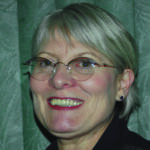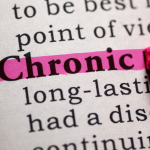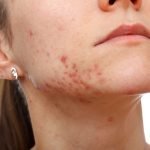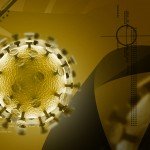Women’s Health: Nurture the Inner Child
Pamela Milroy, ND
At a seminar in Toronto, I was discussing with a colleague a recent Canadian study published in the American Journal of Epidemiology, which identified a 73% higher rate of suicide among women with breast implants compared to the general population. Although the numbers were statistically small, the study questioned whether or not some women who opt for breast augmentation may be predisposed to suicide because of underlying emotional problems or whether the implants themselves are to blame.
The study found that the suicide rate is also higher among women who opt for other forms of cosmetic surgery than the general public. As we were talking, it became evident that we both had friends, patients and associates who had opted for cosmetic surgery as a means of ”refining” their external appearance as a possible solution for other things going on in their lives.
Why are women so dissatisfied with their outer appearance that they find it necessary to undergo cosmetic surgery?
A primary reason seems to be that our society places a high premium on appearing youthful and beautiful. This standard is pervasive in advertising and the media. But is it healthy? Nowadays, many women feel that to be happy and successful (which includes having a good partner and a satisfying job), they are required to have a model-like appearance.
But, how realistic is this? And, is it true?
The hidden emotional trauma interferes with the body by disturbing the healthy functioning of the autonomic nervous system, thereby reducing blood circulation to certain organs and thus affecting their ability to function optimally
Women in Non-Western Cultures
Many women look only at the surface of things. Instead of listening to their inner emotional wisdom, they feel obliged to guide their lives in terms of fashion and appearance by always trying to live up to the expectations of the dominant society. In other parts of the world, such as in Asia or Africa, the role of women in the family and the community is very different. In these other (traditional) societies, an elderly woman is typically revered for her wisdom and experience. Her knowledge is respected and her advice is sought after. In traditional societies in Africa, women know that the older they become the more they will be respected (and appreciated) in their tribe – consequently, they are less inclined to suffer from self-doubt. Instead, they develop self-respect and acquire high self-esteem. Could this also be a primary reason why women in these societies rarely suffer from menopausal symptoms or depression, which are common in the West?
Yet, it is not simply the fact that women in traditional societies are respected, even if they get older and develop wrinkles. It is also the fact that they exercise more – as they have to walk longer distances to get clean water, work in the fields and/or visit the market for food and so forth. Also, typically, their diets are rich in fiber and contain a lot of essential oils, like fish or natural soy products. They eat more greens and fruit, less meat and fewer processed foods, as the latter are more expensive and harder to get.
How Women Believe in Themselves
Apart from food and exercise, I believe the most important factor playing a crucial role in the life (and health) of a woman is how well she has come to terms with herself. For instance: What are the rules she thinks she has to obey? How much pleasure does she allow herself? What is her attitude towards herself? Does she like herself? Does she pamper herself? Is she good to herself? Does she respect herself and her wishes and dreams?
Many women have presented to my office as well as the office of colleague Ulrike Banis, MD with reports of symptoms without a conventional medical “cause.” The sense is that there was an underlying emotional cause.
Psychosomatic energetics can help determine what makes women not feel well. The system helps find conditions like anxiety, nervous tension or autonomic overdrive that usually could not be traced by conventional medical means. Through this method, one is also able to determine whether a patient is exposed to geopathic stress (coming from disturbance zones in the ground), which some doctors’ experiences have shown to be an important factor that can lead to menstrual disorders, miscarriages or even cancer.
Our feelings and immune system are so closely interconnected that it is not realistic to discuss the health of one without considering the well being of the other. Our practices have seen many women who are both attractive and successful in their careers, yet exhibit a “Cinderella-like” syndrome, as they lack self-love and self-esteem.
This may seem odd, and yet it can easily be explained: A hidden emotional trauma that is unresolved and eating away at a woman’s energy system is the real cause behind so many self-destructive and negative behavioral patterns – and behind so many symptoms that can otherwise not be explained by conventional medicine.
Focus Should be on the Inner Child
This brings us back to the women who commit suicide after undergoing breast implant or other cosmetic surgery: If their motive, in undergoing cosmetic surgery, is that they expect to be loved more afterwards, and this expectation is not realized, they fall into depression, which then reduces the function of their immune system. In such a situation, infections from the implant are more likely to occur.
But the hidden emotional trauma does more: It interferes with the body by disturbing the healthy functioning of the autonomic nervous system, thereby reducing blood circulation to certain organs and thus affecting their ability to function optimally. Instead of opting for cosmetic surgery to alter her physical appearance, a woman could focus on nurturing her inner child, addressing her hidden emotional trauma and finding a solution for the issue(s) she feels helpless or angry about. Through a psychosomatic “energy test,” which leads to a diagnosis and treatment, it is possible to address these factors negatively affecting the woman’s health, and lead her to resolution. An affirmation like: “From day to day I learn better to say no when I mean it. I let anger go and put up boundaries to protect myself” is an example of a way to put healing information into the subconscious mind. There is a “solution sentence,” or positive affirmation statement, associated with each of 28 emotional conflicts that block proper energy flow through the body.
For testing, the REBA test device is used to quantitatively measure a patient’s energy level on four parameters – vital, emotional, mental and causal. For treatment, homeopathic compound remedies are prescribed that are well received by most patients.
If the life energy within the body flows without blocks and impediments, patients are much more likely to become healthy and stay healthy. Especially for women, who usually have so many duties and obligations, an adequate supply of life force and an abundance of energy are necessary. Women’s health can be supported if we put our attention not only on blood checks and x-rays, but also on the more subtle, yet vitally important factors, such as emotional condition and energy flow within the body. My experience is that through psychosomatic energy testing and treatment, patients can overcome the emotional blockages that may be keeping them from feeling good about themselves and, as a side benefit, address outstanding physical ailments.
Case Study
Mrs. B., a woman in her 40s, made an appointment for a check-up, as she was suffering from severe depression. There was a family history of well-hidden depression, and one of her grandmothers had committed suicide due to breast cancer. Her father was slightly depressive, but functioned well in society. The same was the case with her mother and two sisters.
Mrs. B. was married, had a son and worked in a profession she loved, although the job was very demanding. She was pleasant and helpful to everyone, but never said “no” if someone put more of a workload on her shoulders. “Out of the blue,” she was overcome by major depression, unable to do her work and almost unable to get out of bed and get dressed in the morning.
I tested her and found very low readings on her emotional level, consistent with a depressive state. She suffered from an autonomic block in the upper abdomen, where we digest not only food, but also the challenges of daily life.
In addition, an issue of “suppressed anger” came up in this segment of the body. When I told her, she instantly could relate to the name of the conflict and told me that this was exactly what was wrong with her: She never allowed herself to express her negative feelings. Instead, she kept swallowing them, up to the point where she “imploded” and became sick.
So I prescribed her a compound homeopathic remedy to rebalance the upper abdomen, and another to help her to cope with her anger and learn how to express it appropriately.
I followed up with her four months later. How she had changed! She smiled, was cheerful and told me that she had managed to cut down on her daily workload. At the same time, she had started to paint and exercise and even had lost some weight (we hadn’t yet discussed her obesity). In addition, she had also learned how to overcome being exploited by others. Both her husband and her boss were amazed and shocked by the manner in which she now stood up for herself and (verbally) fought back.
The depressive mood was totally gone and the “inner fire of the liver,” as Chinese medicine tells us, was now working for her instead of against her.
Years later, I met her again. In her 50s, she still looked like a younger woman. She had not experienced a single problem with menopause; she loved her work and was successful at it; she had a wonderful life with her partner; and now took time for vacations and relaxing, and was exercising. She had changed her diet to primarily vegetarian (with some fish) and she had managed to keep her weight off over the years, despite not adhering to a strict diet.
 Pamela Milroy, ND has been practicing in Ancaster, Ontario since she graduated from CCNM in 1990. She has served on the board of directors of CCNM and OAND. She is a past president of OAND and was also ND of the year in 1997. She has an eclectic practice, but has gravitated towards energy medicine and has enthusiastically embraced psychosomatic energetics since 2005.
Pamela Milroy, ND has been practicing in Ancaster, Ontario since she graduated from CCNM in 1990. She has served on the board of directors of CCNM and OAND. She is a past president of OAND and was also ND of the year in 1997. She has an eclectic practice, but has gravitated towards energy medicine and has enthusiastically embraced psychosomatic energetics since 2005.
References
Banis, U. Geopathic stress – and what you can do about it. Prescott, 2004, Explore Publications.
Banis, U. Personal communications. Practitioner for general medicine and holistic health in Bergenz, Austria.









